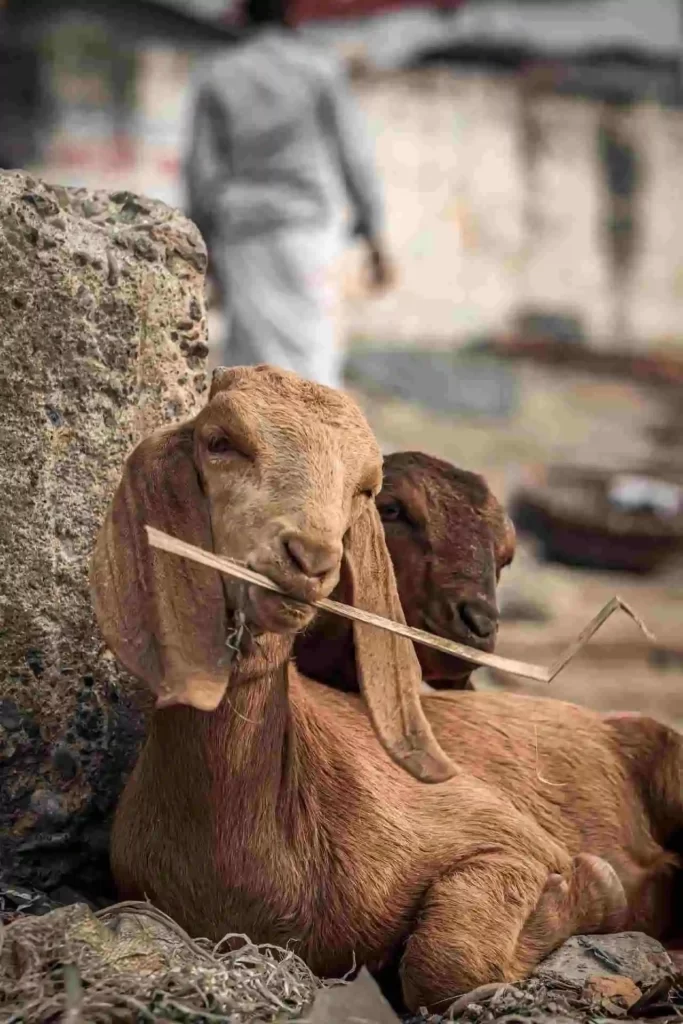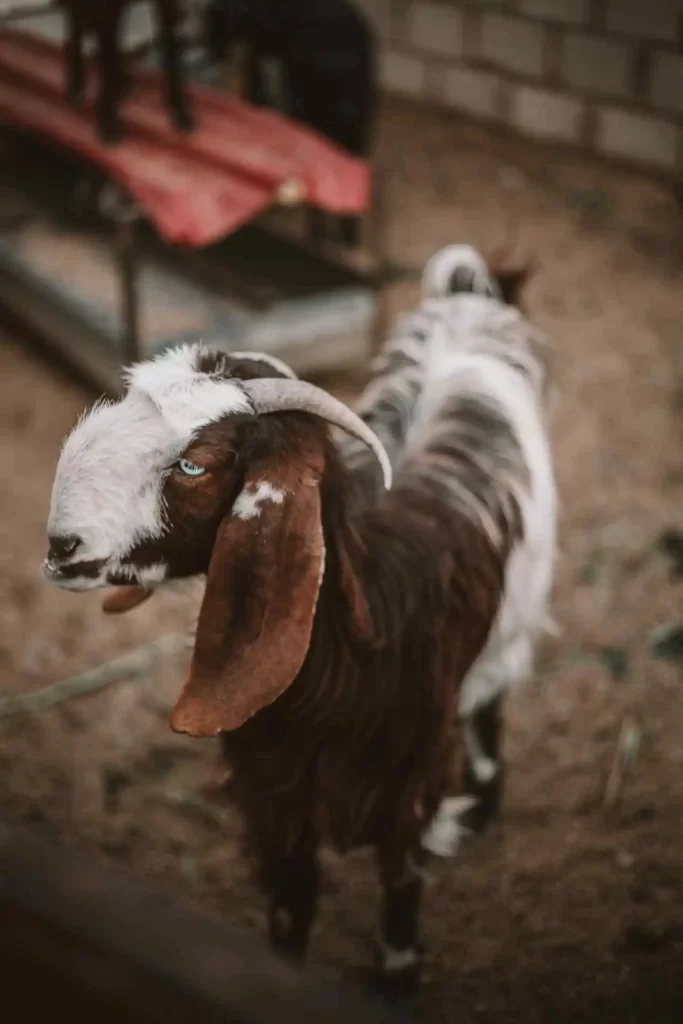What is a Damascus Goat?
History and Origin
Damascus goats, also known as Shami goats, are an ancient breed with a rich history. Their remarkable adaptability and unique physical characteristics make them a popular choice for various agricultural practices. In this article, we will delve deep into the history of Damascus goats, explore their numerous advantages, examine the different types of breeds, and appreciate their notable physical traits. From their origins in the Middle East to their global presence today, these goats have left an indelible mark on the world of livestock farming.
Damascus Goat History
Damascus goats have a history that stretches back thousands of years. Originating in the region around Damascus, Syria, they were bred by ancient nomadic tribes for their exceptional ability to thrive in challenging environments. These goats played a vital role in sustaining the livelihoods of these tribes, providing them with milk, meat, and fiber.
As trade routes expanded, Damascus goats found their way to other parts of the world. Their resilience and adaptability allowed them to flourish in various climates and terrains. Over time, they became prized for their unique characteristics and were selectively bred to enhance their desirable traits.
Advantages of Damascus Goats
- Adaptability**: Damascus goats are incredibly adaptable to diverse climates, from arid deserts to lush pastures. This adaptability makes them ideal for farmers in various regions.
- Sustainable Farming**: These goats are an eco-friendly choice for sustainable farming practices. Their ability to graze on sparse vegetation reduces the need for supplementary feeding.
- High Milk Yield**: Damascus goats are excellent milk producers. Their milk is known for its richness in nutrients and has been used to produce various dairy products.
- Meat Production**: The breed is also favored for its meat, which is lean and tender. It offers a flavorful option for culinary purposes.
- Fiber**: Damascus goats produce soft and luxurious fiber, used to create high-quality textiles and garments.
- Disease Resistance**: Over centuries of natural selection, these goats have developed robust immune systems, making them less susceptible to certain diseases.
- Sociability**: Damascus goats are known for their friendly and sociable nature, making them easy to handle and manage.

Types of Damascus Goat Breeds
- Deraa Damascus Goat**: This breed hails from the Deraa region of Syria and is known for its distinctive black coat and white markings. They are prized for their milk and meat production.
- Baladi Damascus Goat**: Originating from Lebanon, the Baladi goats are known for their impressive ability to produce high-quality fiber used in the textile industry.
- Halep Damascus Goat**: The Halep goats, native to Aleppo, Syria, are treasured for their ability to thrive in extreme climates and terrains.
- Shami Damascus Goat**: The Shami goats are the most widely recognized and are found in many countries. They are versatile and valued for their overall productivity.
Physical Characteristics of Damascus Goats
Damascus goats possess several distinctive physical traits that set them apart from other breeds:
- Color Patterns: Their coat color can vary from pure white to various shades of brown, black, or gray. Some have unique spotting patterns.
- Spiraled Horns: One of the most striking features of Damascus goats is their magnificent spiraled horns, which can grow quite large in both males and females.
- Elongated Ears: Their ears are long and droopy, contributing to their charming appearance.
- Strong Hooves: Damascus goats have sturdy hooves that aid in navigating rough terrains with ease.
- Medium to Large Size: These goats are medium to large-sized animals, with well-developed bodies.

Damascus goats Important Uses
Damascus goats are highly versatile animals with various uses and are valued for their specific characteristics. Here are some of the common uses of Damascus goats:
- Milk Production: Damascus goats are excellent milk producers. Their milk is rich in nutrients and is used to produce various dairy products such as cheese, yogurt, and butter.
- Meat: The breed is also valued for its meat, which is lean and tender. Damascus goat meat is popular in many cuisines and is known for its delicious flavor.
- Fiber: Damascus goats produce soft and luxurious fiber, which is used in the textile industry to create high-quality garments and textiles.
- Land Management: Due to their adaptability and ability to graze on sparse vegetation, Damascus goats are used for land management in areas with overgrown vegetation.
- Sustainable Farming: These goats are often chosen for sustainable farming practices due to their low input requirements and ability to thrive in challenging environments.
Damascus goats Price
As for Damascus goat prices, they can vary depending on various factors such as the goat’s age, breed, gender, health, and location. Generally, Damascus goats are considered a valuable breed, and prices may be higher compared to some other breeds due to their unique characteristics and versatility. Prices can range from a few hundred dollars for young goats to several thousand dollars Like $50,000 for top-quality breeding animals. It’s essential to consider the purpose of acquiring the goat and the specific traits you are looking for before making a purchase.

Significance of Damascus Goat Skull and Skeleton
The skull and skeleton of Damascus goats hold significant importance both in terms of their biology and cultural symbolism. These aspects reveal intriguing insights into the adaptation of these goats to their environment and their historical role in local traditions.Damascus Goat Skull: Unique Features
Horns and Their Role
One of the most captivating features of the Damascus goat skull is its horns. Unlike many other goat breeds, both male and female Damascus goats have impressive, twisted horns. These horns are not merely for display; they serve various purposes, including defense against predators and establishing dominance within the herd.Cranial Structure
The cranial structure of Damascus goats is a marvel of adaptation. Their skulls are designed to provide a balance between strength and agility. This unique cranial morphology allows them to navigate rough terrains with ease, making them well-suited to the rocky landscapes of their native region.
Damascus Goat Skeleton: Anatomy and Structure
Skeletal Composition
The Damascus goat skeleton is a complex system of bones that enables the animal’s movement and supports its body. Their leg bones are sturdy and well-formed, allowing them to traverse challenging landscapes with exceptional agility. The spine is also a crucial aspect of their skeletal structure, contributing to their overall flexibility.
Adaptations and Mobility
The skeletal adaptations of Damascus goats make them well-adapted to their natural habitat. Their ability to climb steep mountains and forage for food in challenging terrains is a testament to the efficiency of their skeletal system. These goats have been able to thrive in arid and mountainous regions due to their remarkable mobility.

The Role of Damascus Goats in Culture and Tradition
Cultural Significance
Damascus goats hold deep cultural significance in the regions where they have been reared for centuries. They are often associated with resilience, adaptability, and community bonds. Their portrayal in folklore and traditional stories further strengthens their importance in local cultures.
Traditional Uses
Throughout history, Damascus goats have been utilized for their milk, meat, and fiber. Their wool is highly prized for its softness and warmth, making it ideal for creating traditional garments and textiles. The significance of these goats in traditional practices continues to be cherished even in modern times.
Conservation Efforts for Damascus Goats
As with many ancient livestock breeds, Damascus goats face challenges related to genetic diversity and population decline. Various organizations and researchers are actively engaged in conservation efforts to preserve the breed’s unique traits and ensure its survival for future generations.Research and Scientific Studies
Scientific interest in Damascus goats has led to various research projects exploring their genetics, behavior, and adaptability. These studies not only deepen our understanding of the breed but also inform conservation strategies and sustainable breeding practices.
Breeding and Domestication
Selective Breeding
Selective breeding has played a vital role in shaping the characteristics of Damascus goats. Modern breeders focus on preserving the breed’s distinct traits while improving desirable traits such as milk yield and disease resistance.
Benefits and Challenges
The breeding and domestication of Damascus goats offer numerous benefits, including livelihood support for local communities and genetic preservation. However, there are also challenges related to maintaining genetic diversity and preventing inbreeding.
The Future of Damascus Goats
The future of Damascus goats rests on the shoulders of conservationists, researchers, and responsible breeders. By continuing to celebrate and protect this ancient breed, we can ensure that the legacy of lives on for generations to comeFrequently Asked Questions (FAQs)
- Are Damascus goats suitable for small farms?**
– Yes, Damascus goats are well-suited for small farms due to their adaptability and manageable size.
- What is the average lifespan of a Damascus goat?**
- Can Damascus goats be raised as pets?**
- Do Damascus goats require special care?**
- What is the best climate for raising Damascus goats?**
- Can Damascus goats be crossbred with other goat breeds?**
– Crossbreeding is possible, but it’s essential to ensure the compatibility of the breeds and the desired outcomes.
Conclusion
Damascus goats have an ancient history filled with valuable contributions to human society. From their roots in the Middle East to their presence in different parts of the world, they have proven to be versatile and beneficial for farmers and livestock enthusiasts alike. With their impressive adaptability, milk production, meat quality, and luxurious fiber, Damascus goats continue to be a treasured breed in the global agricultural landscape.
Whether you’re considering raising Damascus goats on your farm or simply appreciate their cultural significance, understanding their history, advantages, breeds, and physical characteristics adds to the appreciation of these remarkable animals.
You Can read this too